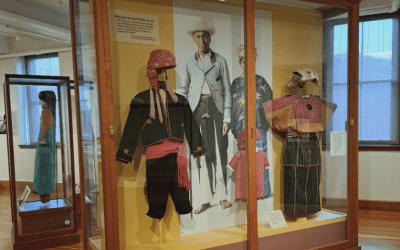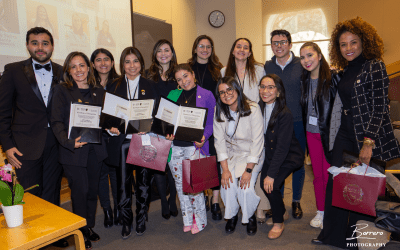
About the Author
Jason Valladares is a student at the University of West Florida pursuing a degree in Economics and a minor in International Studies. He was born in Comayagua, Honduras, and was raised in Germany and Italy because his father was in the US Air Force. He seeks to use his knowledge and education to focus on early childhood education to ensure all children in developing countries are given a competent level education in order for great societies to arise.
The Broken Promises Healed by the Children
Hands on my knees, out of breath after 80 minutes of constant running, I had survived the soccer match and could now go to the ancient city of Trier, Germany, to celebrate the triumph with a well-deserved banana split with my family at the Cafe Mohr.
The day was September 4, 2010. I had just recently turned 9. If I recall correctly, I was sitting down next to my dad enjoying my ice cream after my three-goal performance, telling him about how my classmates and I recite the Pledge of Allegiance every morning at my US Department of Defense school (my father was in the US Air Force). I then told him how it reminded me of when they would make us recite the Honduran National Anthem in Honduras, where I was born.
As I began to recite that anthem, trying to make sense of this interesting cultural triad that now defined my experience, I remember coming across this one line that sounded powerful. It was “Era Francia, la libre, la heroica, Que sueño de siglos dormida, Despertaba iracunda a la vida, Al reclamo viril de Dantón.” My dad suddenly stopped me and asked me if I knew what that truly meant.
“Let me take you back to June 29, 2009,” he said. He asked me if I ever wondered why I hadn’t attended school that day. I remembered standing outside my classroom at Jose Cecilio del Valle in Comayagua, Honduras, until the guard at the school came up to us and said our teacher was not coming in that day. This was the beginning of what would become frequent disruptions until we moved to Germany in March, 2010. Now that I’m older, I realize that what had occurred the day prior to that Monday morning is what ignited my passion for education and human development in order to build an effective, just and responsible society that works for all its citizens.
With the violent overthrow of our democracy on that late June morning, many of our constitutional rights (from our most recent constitution of 1982) were suspended through both the “state of exception” and the “state of emergency,” decreed after the deposed democratically elected president, Mel Zelaya, surreptitiously returned to the capital in September, hiding out in the Brazilian Embassy. Among those rights that were suspended were personal liberty (Article 69), freedom of expression (Article 72), freedom of movement (Article 81), habeas corpus (Article 84) and freedom of association and assembly. This political situation made life very difficult for us. It was a blow to the intent and purpose of the ideals of Francisco Morazán and Jose Cecilio del Valle and all those who promised Central Americans a future of freedom and opportunity to develop.
Although the June 28, 2009, coup d’etat of changed my life and educational opportunities in Honduras, it was merely another example of the broken promises to the Honduras people from 1821 to the present day. The Central American Revolution of 1821 shared the same philosophical foundation with the United States and France and their revolutions. However, it has taken Honduras 26 constitutions and half a dozen coups since World War II to shatter my educational dreams and economic and civic opportunities in that country. This turbulent history has contributed strongly to the abysmal state of education and human development in Honduras. According to a study by the non-profit Bless The Children Incorporated, in 10 out of the 18 departments (states), nine out of every ten students have to repeat a grade. It takes the average student 0.4 years to finish the sixth grade. Just over half (51%) of children registered go on to complete primary school, making the average years of education a shockingly low number of four.
As we sat in the German café, my dad then proceeded with our conversation by putting into perspective how much different my current life is. I didn’t have to worry about having to wake up at 4 a.m. on Monday morning to go to work before school or coming home to no food. Instead, I was coming home to a household with both parents dedicated to my education and development. I was attending a school with well-trained, competent teachers: my reading, math, science and social studies grades had increased substantially during the six-month period. I was becoming fluent in English, learning German and building international relations with my friends from the United States as well as my German teammates.
Fast forward a couple of years. I was lost in thought as my father drove through the challenging and vibrant streets of Paris on that gloomy January day in 2012 looking for that rare available parking space on the Left Bank. I was now fluent in English, had a basic knowledge of German, was a good student, learned a few musical instruments and had become an accomplished soccer player on a German team. As we drove around, I worried about the fact that we would soon return to Honduras for the first time since our departure to attend my tia’s wedding. I was a different person and I was not sure how I would deal with being in my old environment. Would I still fit in? Had my friends forgotten me? Countless questions that I didn’t have an answer to at the moment.
“That’s him! That’s him!” My father yelled enthusiastically as we walked up to a statue. “That is the Danton of your anthem. Remember?”  Strangely, I felt like I was already in Honduras as soon as he showed me that statue, but not as it was in reality. Instead, I imagined the Honduras that was promised to us, the one that was inspired by Danton. “I want to show you where revolutions and social change are born,” he told me and my mother. We walked to the Cafe de Flore. As we sat consuming treats, drinking coffee, and writing in our journals, my dad explained to me that it took France five republics to fulfill their promise to their citizens. He then mentioned that this cafe was founded in the Third Republic, and had seen both successes and failures, and that is the norm of building a successful society; it is a process, and not a smooth one. He then said many of the successful ideas came from these very streets and in this very cafe where I was sitting. I looked up to the sky, thinking about getting on that plane to Honduras, and I felt optimistic.
Strangely, I felt like I was already in Honduras as soon as he showed me that statue, but not as it was in reality. Instead, I imagined the Honduras that was promised to us, the one that was inspired by Danton. “I want to show you where revolutions and social change are born,” he told me and my mother. We walked to the Cafe de Flore. As we sat consuming treats, drinking coffee, and writing in our journals, my dad explained to me that it took France five republics to fulfill their promise to their citizens. He then mentioned that this cafe was founded in the Third Republic, and had seen both successes and failures, and that is the norm of building a successful society; it is a process, and not a smooth one. He then said many of the successful ideas came from these very streets and in this very cafe where I was sitting. I looked up to the sky, thinking about getting on that plane to Honduras, and I felt optimistic.
I remember being welcomed to a billion hugs from my family members at the airport. It had been years since I had last seen them. I felt like nothing had changed. Then, I stepped foot out of the airport. Immediately I covered my eyes, as dirt from the roads permeated the air. I spotted cars that had seen much better days, frankly, years. I was in complete shock as to what I was witnessing. I remember feeling my mom squeeze my hand and tell me to stay close and not approach street vendors.
We quickly loaded our bags on my uncle’s truck since relatives were the only ones who could be trusted to drive a family freshly arriving from the abroad. The drive was very bumpy along the dirt road. At every corner, dogs with visible rib cages roamed alongside mud houses. It pained me to see kids with baskets on their heads selling tortillas, candies, chips and other snacks to any car that stopped. The treats usually cost a lempira, our currency named after the Lenca leader who lost his fight to the Spanish colonists. Kids no older than 10 were trying to help out their families when their only worry should be about learning new things at school and having to decide whether they will go on the swings or down the slide during recess.
I am now 21 years old and living a life of unlimited opportunities because of my family’s sacrifices. A day does not pass that I don’t think about where I’d be if I had stayed my whole life in Honduras. Would I be the one with the basket on my head selling anything I could get my hands on in order to help put food on the table? I may not be able to change the past but I am in forever debt to my home nation for showing me my life purpose every time I visit and to the United States for letting a small kid from Comayagua, Honduras, be able to dream. Every child deserves the opportunity to be raised in society where they are given competent level education. These children are the future. In order to see future change, we must look at our future leaders. Educate the youth and a great society will follow.

Jason studying with his father, Eric, and brother, Ruben
More Student Views
Fibers of the Past: Museums and Textiles
Every place has a unique landscape.
Río Piedras: As a Desert Flower Blooms in the Night
The sunset of my first day at the Harvard Puerto Rico Winter Institute (HPRWI) painted the sky with violet and magenta. It felt as if the day had just begun.
Colombian Women Who Empower Dreams
English + Español
The verraquera of Colombian women knows no bounds. This was the message left with me by the March 30 symposium, “Empowering Dreams: 1st symposium in honor to Colombian women at Harvard.”




